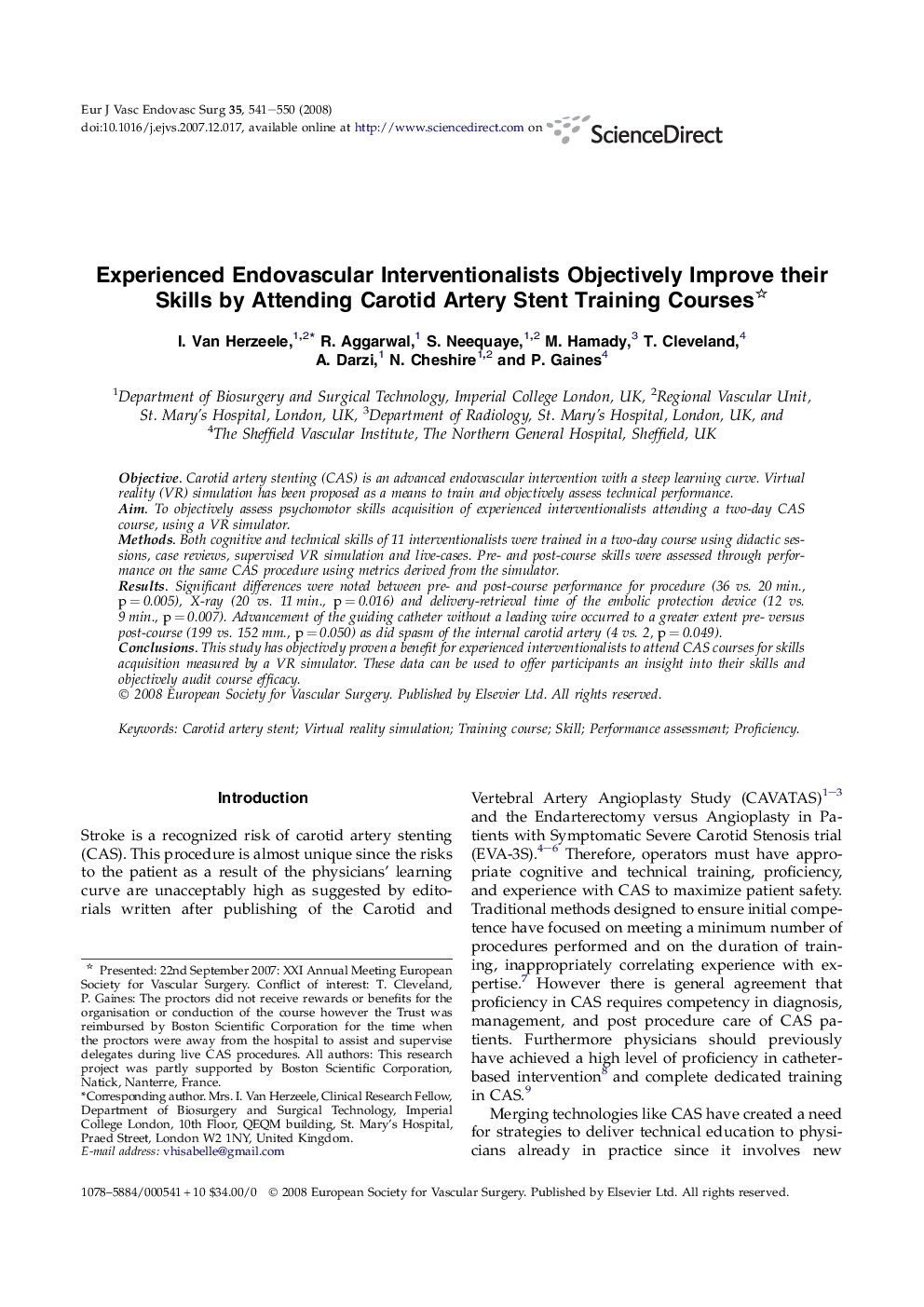| Article ID | Journal | Published Year | Pages | File Type |
|---|---|---|---|---|
| 2914213 | European Journal of Vascular and Endovascular Surgery | 2008 | 10 Pages |
ObjectiveCarotid artery stenting (CAS) is an advanced endovascular intervention with a steep learning curve. Virtual reality (VR) simulation has been proposed as a means to train and objectively assess technical performance.AimTo objectively assess psychomotor skills acquisition of experienced interventionalists attending a two-day CAS course, using a VR simulator.MethodsBoth cognitive and technical skills of 11 interventionalists were trained in a two-day course using didactic sessions, case reviews, supervised VR simulation and live-cases. Pre- and post-course skills were assessed through performance on the same CAS procedure using metrics derived from the simulator.ResultsSignificant differences were noted between pre- and post-course performance for procedure (36 vs. 20 min., p = 0.005), X-ray (20 vs. 11 min., p = 0.016) and delivery-retrieval time of the embolic protection device (12 vs. 9 min., p = 0.007). Advancement of the guiding catheter without a leading wire occurred to a greater extent pre- versus post-course (199 vs. 152 mm., p = 0.050) as did spasm of the internal carotid artery (4 vs. 2, p = 0.049).ConclusionsThis study has objectively proven a benefit for experienced interventionalists to attend CAS courses for skills acquisition measured by a VR simulator. These data can be used to offer participants an insight into their skills and objectively audit course efficacy.
